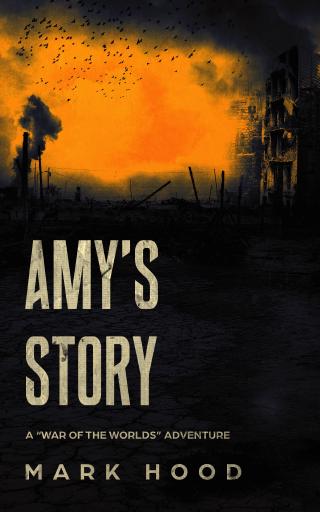How I came to love setting low goals.

Part of a series on writing every day.
- Part 1: Let’s call 2020 a practice year
- Part 2: Where just 200 words a day can get you (this post)
- Part 3: Why I wrote every day for over a year
- Part 4: How I wrote every day
- Part 5: How I conquered the block
You want me to do what?
So I did NaNoWriMo in November 2019.
For those unfamiliar with it, NaNoWriMo (or National Novel Writing Month ) is a global challenge where authors try and write 50,000 words in November each year. The idea is that you blast out a lot of words, writing what is basically the entire first draft of a novel and then come back later and edit it.
I’ve done it before, and indeed I ‘won’ (you don’t win anything, you just succeed to hit the word count target) the first year I did it. I wrote an average of 1,766 words every day for 30 days, and came away with… well, it wasn’t great but it was the basis of my first novel. I don’t regret doing it for one second, and it put me on the path to writing that I am following now.
But November 2019 just did not go well. I missed a day or two for various reasons, and then lethargy took over. I felt that since I’d missed a day, I had to catch up. So now instead of an already challenging 1,766 words to write in a day I was faced with 3,333. Numerical symmetry aside, that’s a hell of lot of work to do.
And yes, I could have spread out the missing words over the rest of the month, but that’s just not how my brain works. Besides, the later in the month you miss a day, the fewer chances to spread out the work there are.

So I stopped, about 20,000 words in. And I was happy with those words, would not have done them otherwise, and I didn’t beat myself up for ‘failing’. I had a load of excuses about how busy I was, how many distractions had kept me from achieving the goal, how quality was better than quantity.
But it still felt disappointing. If I was really a writer, I should have been able to do that, shouldn’t I? There’s authors out there writing 5,000 words an hour !
Well, no. Terry Pratchett only wrote 400 words a day, on average. But he did it every day, even the day of his father’s funeral. And a lot of writers say that writing every day is key to their own process, keeps your mind focused on the task at hand, and builds a habit that’s hard to break.
My own experiences with NaNoWriMo echoed that - writing every day, coming back to the well every single day was exciting. The story lived in my head much more vibrantly than when I wrote ‘as and when’ I could. But still, that goal was so hard to reach…
Enter the BestSeller Experiment
I’ve been listening to the BestSeller Experiment podcast since the very early days (they’re about to hit their 300th episode at the time of writing this). Two guys who decided to write, publish and sell a book in just one year, with the goal of hitting the bestseller list on Amazon. Spoiler alert: they did it.
Ever since the beginning, they’ve been fascinated with how writers write. Whether that’s the mechanical act of getting words on a page or screen, the mental processes of plotting (or not), the mindset of an author. And now they were ready to put their learning into practice.
Around the time I was crashing out of NaNoWriMo, they announced they would be doing a new experiment: #BXP2020 . This was a group challenge, open to anyone who wanted to take part. All you had to do was this.
Write 200 words a day.
That’s it. You could write more, of course. The idea was simple, and it took only maybe 10-20 minutes a day. And then you logged your words in the website, so they could be counted. I also kept a local copy in a spreadsheet, because that’s the kind of nerd I am.

The logic was that by writing every day, by keeping the act of writing in your mind constantly, you built a habit that you could stick to. And by setting the goal so low, the mental inertia needed to get started with it was reduced. “Just 10 minutes” is a lot easier to push yourself into doing than “another two pages”. And the secret sauce? Once you got going, once you hit word number 200, you weren’t really likely to stop. You had built up some momentum, the snowball was rolling and you tended to keep going.
This was the plan, at any rate. The experiment was asking thousands of authors worldwide to try it and see what happened.
I decided to be one of them.
This post has gotten long enough already, so I’ll be documenting my experiences in another one. But I can’t tease you when you’ve read this far, so I’ve a couple of little facts to tide you over.
- I did it. I wrote every single day in 2020.
- I wrote much more than 200 words a day.
Part 3: Why I wrote every day for over a year is the next exciting installment… and some of those words are in the book linked below, which is out now!
NaNoWriMo Logo courtesy of National Novel Writing Month





